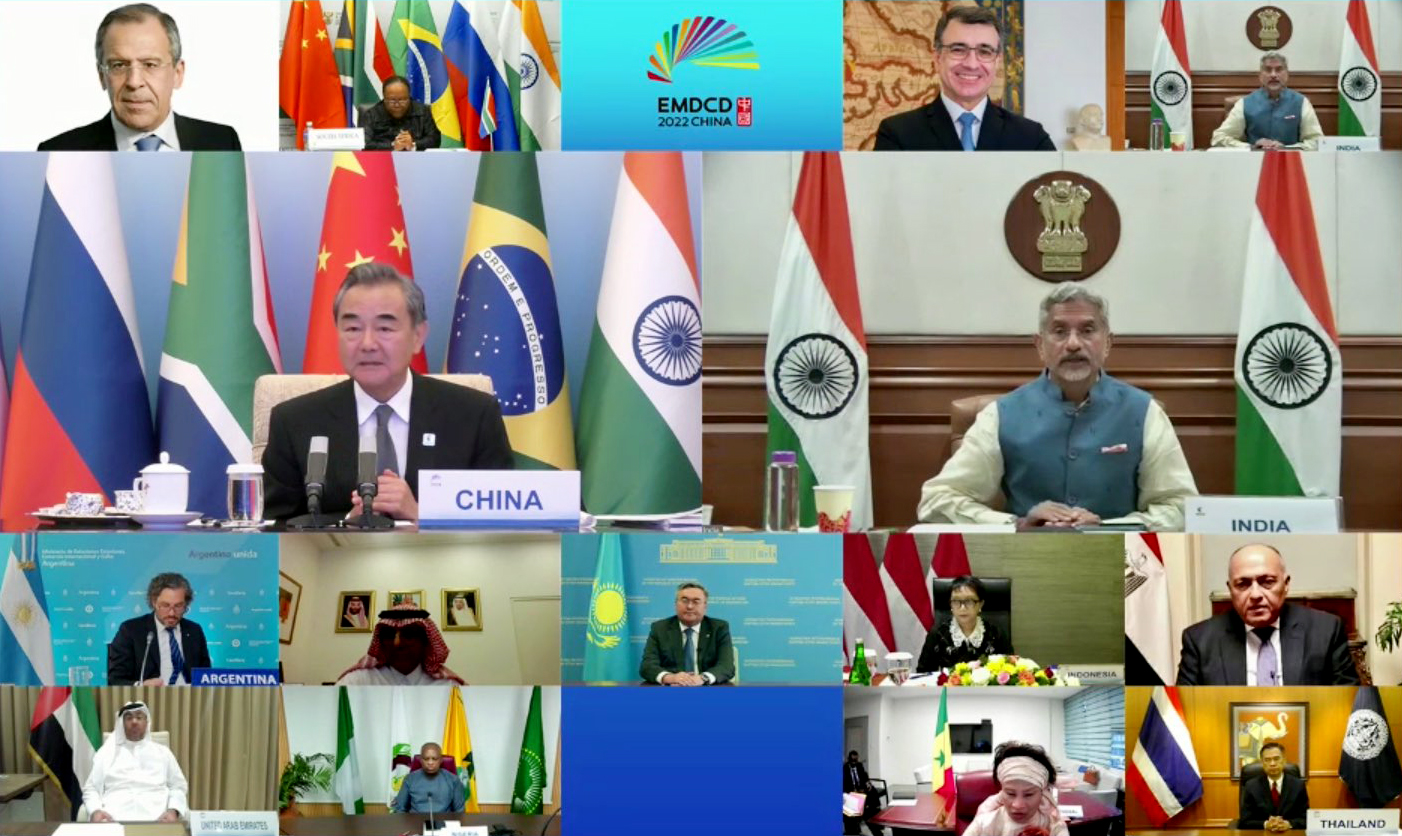Those eager to expand before stabilisation of relations between the existing members of BRICS are being impetuous.
Altanticist structures misnamed as “international” were conceptualised at Bretton Woods in 1944, when it was clear that the inexhaustible armies led by Marshal Stalin were pounding into chaos the soldiers that had been let loose upon Europe and North Africa by Adolf Hitler. The IBRD (World Bank) and the IMF are the children of the discussions that took place at Bretton Woods. The United Nations followed. The problem with the IBRD and the IMF is that these are institutions which are still dominated by the Atlantic alliance. Japan, as has been the norm since 1945, is content to follow the US-EU lead in world affairs
In view of the serious situation concerning Covid-19 in China, as is evident from the strong measures being taken in Shanghai and other cities in an effort by authorities to roll back the tide of cases, it is clearly inadvisable for health reasons for the leaders of Russia, Brazil, South Africa and India to travel to the PRC in person for the BRICS summit that will soon take place. President Xi has set a personal example that they should follow, of attending such conferences online. In the meantime, there is talk of BRICS being expanded to include some other countries. Such a move needs to be shelved. The priority for BRICS is to ensure the stabilization of relations within its ranks through the observance of internationally acknowledged codes of conduct by each of its members. This would include respect for the internationally mandated laws of the sea, and in agreeing to ensure that kinetic means not be deployed by one member against the other, as happened in 2020, when Chinese troops launched incursions into India. Force should be taken off the table in conduct not just towards each other but towards other territories as well. Until such behaviour becomes the norm within BRICS, it would be premature to expand the group any further. Those eager to expand before stabilisation of relations between the existing members of BRICS are showing an impetuosity that is similar to the emotionalism that is driving US-UK-EU policy in the matter of Russia and Ukraine. After the overreaction by several countries to the spread of Covid-19 across the globe via flights out of affected areas of the PRC since the pandemic began has come the equally hysterical approach now witnessed in the matter of NATO assistance to Ukraine at the risk of a kinetic contest between itself and the Russian Federation. President Bush got revenge on Saddam Hussein for the alleged effort by the Iraqi dictator to kill his father (a “plot” that was almost certainly a concoction of those non-resident Iraqis eager to pit the US against the dictator’s forces). The gainer has been Iran, which is now the most influential country in Iraq. The gainer from President Biden’s obsession with punishing Putin for allegedly depriving the Clintons of a third term in the White House is China, something that the Sino-Wahhabi lobby within the US of course welcome. At the soon to take place BRICS summit, the focus has got to be on ensuring internationally accepted norms of behaviour especially with each other of the five countries. Expansion, if any, can come after that, and not before.
There are those who seek to move on from tasks left incomplete by them to still more tasks, all of which will also remain incomplete. BRICS needs to ensure a higher standard of performance for itself before expanding. The focus during the forthcoming summit of the Heads of Government of India, China, Russia, South Africa and Brazil needs to be on making each within the own group more respectful of global norms than has been the case with some. Talk of expansion seems to be an effort at drawing attention from this unfortunate reality and towards peripheral issues. Such a diversion needs to be avoided if BRICS is to be taken seriously even by its existing members.

